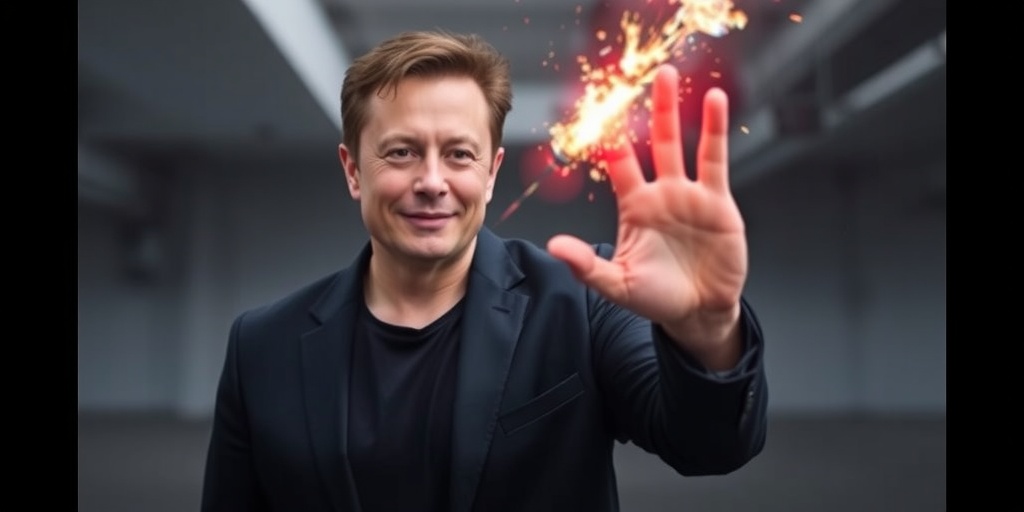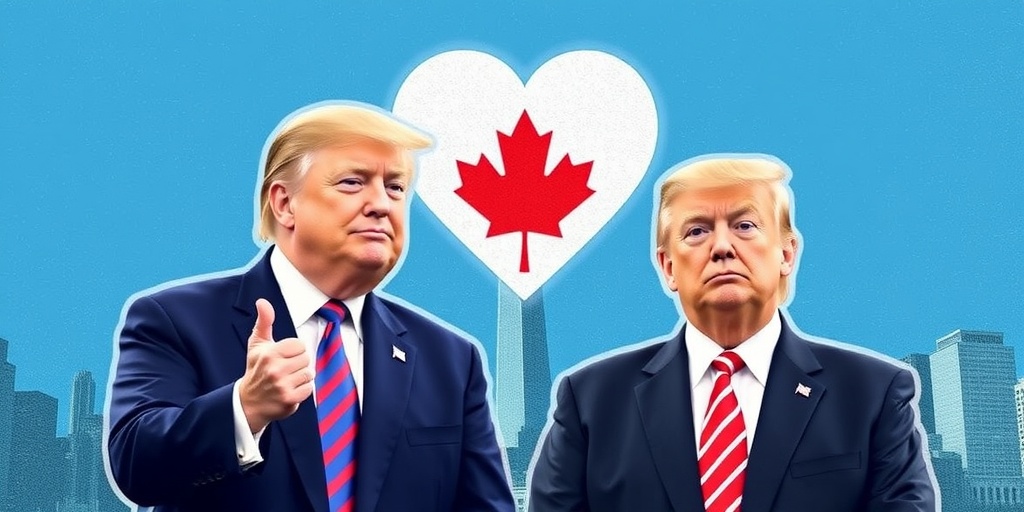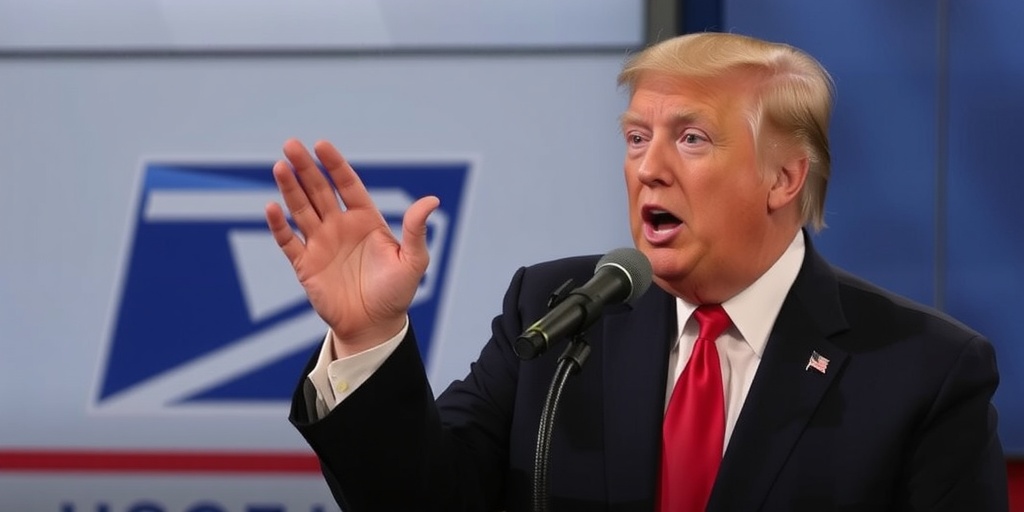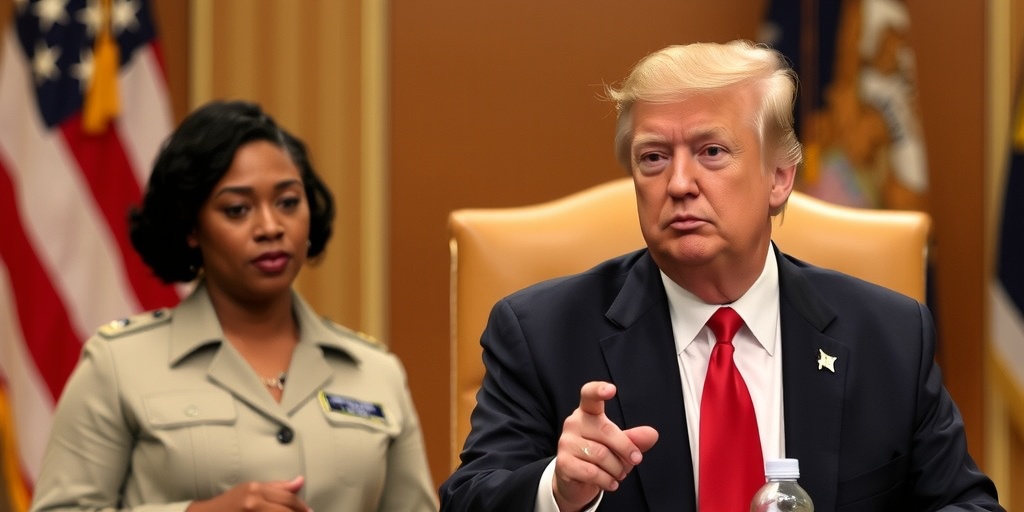Now Reading: Supreme Court Denies Trump’s Attempt to Dismiss Government Watchdog
-
01
Supreme Court Denies Trump’s Attempt to Dismiss Government Watchdog
Supreme Court Denies Trump’s Attempt to Dismiss Government Watchdog
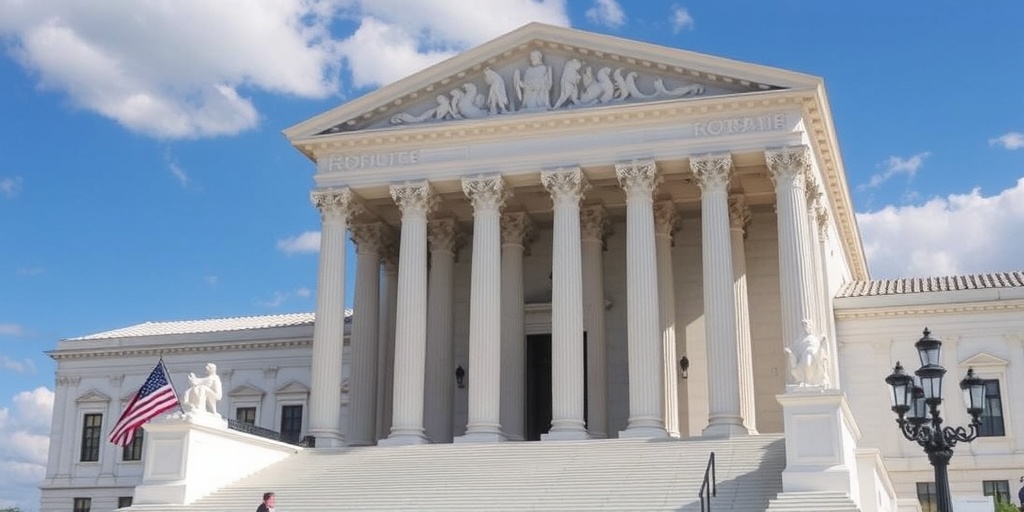
Supreme Court Temporarily Blocks Trump’s Effort to Dismiss Whistleblower Protection Lawyer
In a pivotal ruling on Friday, the U.S. Supreme Court decided that President Trump cannot dismiss a government lawyer, Hampton Dellinger, who heads the Office of Special Counsel, while he challenges the legality of his firing. The unsigned order from the court indicates that the issue may be revisited shortly, particularly with a temporary restraining order set to expire next week.
The decision marks a significant moment as it is the first case stemming from President Trump’s extensive use of executive power during his second term to reach the Supreme Court. Notably, this comes as Trump aims to remove thousands of federal employees, including those in positions traditionally considered immune to immediate dismissal.
Justice Sonia Sotomayor and Justice Ketanji Brown Jackson expressed their disapproval of the Trump administration’s petition for Supreme Court involvement, indicating a readiness to reject the request outright. Justice Neil M. Gorsuch, joined by Justice Samuel A. Alito Jr., dissented, suggesting the majority acted under the presumption that temporary restraining orders are generally not subject to immediate appeal. Gorsuch noted with respect that he believed the order did warrant appeal and that the continuity of the order only underscored his point.
This legal saga began when Dellinger, who was appointed to head the Office of Special Counsel in 2022, found himself the target of a firing attempt by an administration official on February 7. The email communicating his dismissal lacked any explanatory context, prompting Dellinger to pursue legal action to contest the firing. Judge Amy Berman Jackson of the Federal District Court in Washington granted a temporary restraining order that allowed Dellinger to retain his position for two weeks while she deliberated on whether to issue a preliminary injunction.
Following a divided decision from a three-judge panel that stated it lacked jurisdiction to address the matter, the Trump administration escalated the issue to the Supreme Court, arguing for immediate relief. Acting Solicitor General Sarah M. Harris described the circumstances as an "unprecedented assault on the separation of powers," asserting that the ongoing judicial interventions undermine the presidency’s ability to oversee the executive branch, particularly at the onset of a new term.
In contrast, Dellinger’s attorney, Joshua A. Matz, characterized the legal issues as complex and stressed that Supreme Court review was premature. He argued that fundamental constitutional questions should not be resolved in response to what he termed a temporary situation, cautioning that unjustified rulings could have destabilizing effects.
Harris maintained the legal matters were straightforward and urged the court to act promptly. She referenced a July ruling in "Trump v. United States," which conferred substantial immunity to Trump from prosecution, suggesting that the administration’s position should be upheld.
Harris drew parallels with previous Supreme Court decisions involving the Consumer Financial Protection Bureau (CFPB) and the Federal Housing Finance Agency, where the court concluded that presidents have the authority to dismiss heads of single-official agencies. Following this precedent, President Biden exercised similar powers to remove leaders of various federal agencies shortly after taking office.
While Matz acknowledged that the Supreme Court has historically allowed such firings, he argued that the Office of Special Counsel has limited jurisdiction, distinguishing it from more powerful agencies like the CFPB. The agency’s role is primarily to enforce rules regarding the conduct of federal employees and safeguard whistleblowers—a function regarded as critical amidst ongoing national debates over federal employment practices.
Harris cautioned that the case represented an ongoing trend wherein lower court judges have repeatedly imposed temporary restraining orders that thwart Trump’s constitutional powers. She cited specific instances where such orders hindered Trump policies, including restrictions on accessing Treasury Department data and the suspension of foreign aid.
Matz countered that weakening the Office of Special Counsel at this juncture would be particularly detrimental, given the prevailing instability in federal employment structures and the importance of protecting whistleblowers from retaliation.
As the Supreme Court prepares to consider this issue more thoroughly, the outcome may have lasting implications for presidential power and the boundaries defining the relationship between federal agencies and the executive branch. The legal community and government observers await further developments, especially as the court’s brief approval signals a continuing dialogue about the limits of executive authority.
Stay Informed With the Latest & Most Important News
Previous Post
Next Post
-
 01New technology breakthrough has everyone talking right now
01New technology breakthrough has everyone talking right now -
 02Unbelievable life hack everyone needs to try today
02Unbelievable life hack everyone needs to try today -
 03Fascinating discovery found buried deep beneath the ocean
03Fascinating discovery found buried deep beneath the ocean -
 04Man invents genius device that solves everyday problems
04Man invents genius device that solves everyday problems -
 05Shocking discovery that changes what we know forever
05Shocking discovery that changes what we know forever -
 06Internet goes wild over celebrity’s unexpected fashion choice
06Internet goes wild over celebrity’s unexpected fashion choice -
 07Rare animal sighting stuns scientists and wildlife lovers
07Rare animal sighting stuns scientists and wildlife lovers














